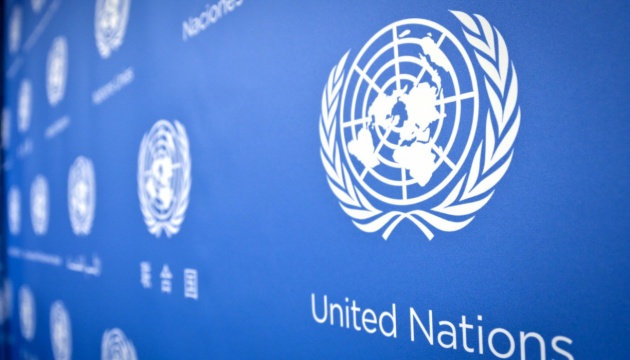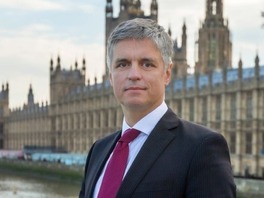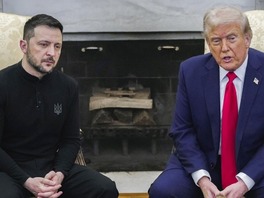The United Nations (UN) celebrated its 75th anniversary on October 24th without the usual revere and festivities. Composing of 193 member states, the UN is one of the oldest international organizations to exist to date. In Ukraine, it is now facing numerous challenges, such as a rising need for humanitarian assistance in Donbas and support to reforms with a special emphasis on the healthcare system and preventing the spread of COVID-19. “Apostrophe” took a look at the UN’s involvement in Ukraine and how it deals with the country’s key challenges.
Ukraine has always had a strong affinity for the UN. When still being named the Ukrainian SSR, it was one of the UN founding member states. The head of the Soviet Ukrainian delegation at the time, Dmytro Manuilskyi, headed the first committee in San Francisco in 1945, which ended up developing the objectives and the principles of the UN Charter.
Ukraine was elected a number of times to the Security Council as non-permanent member. When enjoying the title of head of the SC, Ukraine managed to make a sustainable contribution with regards to the crisis period in the Balkans and Middle East. In the 29 years of Ukraine’s independency, the country has partaken in 27 peacekeeping operations.
 Osnat Lubrani, United Nations resident coordinator in Ukraine
Osnat Lubrani, United Nations resident coordinator in Ukraine
This situation changed drastically in 2014, when Ukraine suddenly turned from security contributor to security donor. Ukraine appealed for the UN to deploy peacekeeping forces on its territory after the illegal annexation of Crimea and the start of the military conflict in Donbas, it saw its attempts thwarted by Russia, which exercised its veto right as a permanent member of the UN Security Council.
“Sadly, the existence of a veto right gravely interferes with UN activities in the field of conflict regulation and peacekeeping”, says Nikolay Kapitonenko, an expert of the International Centre for Policy Studies (ICPS).
According to Mr. Kapitonenko, “modern conflicts often have an internal character, meaning they take place within the boundaries of one singular country, yet they tend to face interference from external sources. Regular international wars, with the standardized format of 100 years ago, are a dying breed. This is why it’s more important than ever for the parties to a conflict to have faith in international organizations”.
Mr. Kapitonenko believes that no organization can help Ukraine solve its problems with Russia. “The key to solving the Ukrainian-Russian conflict can only be found within their bilateral relations. However, this doesn’t mean that the OSCE and the UN can’t assist in finding a solution”.
Despite the deadlock in the Security Council, the UN has increased its activity in Ukraine in recent years. Its representative staff has grown since 2014 to over 1500 employees and UN network of agencies and programs covered all Ukrainian regions with a special focus on Eastern Ukraine.
"The UN considers Ukraine to be a country with great potential to contribute to the regional and global agendas we advocate”, says Ms. Osnat Lubrani, the UN’s Resident and Humanitarian Coordinator in Ukraine.
She identified the UN’s three main priorities in Ukraine. The first one of which is the need to contribute to the development of a sustainable peaceful environment in Ukraine, which is a foundation to build and maintain cross-country social cohesion. The second priority is the continuation of structural reforms, going hand in hand with their strategic communication in order to demonstrate their positive impact on Ukrainians’ lives. The third, and last, necessity is the joint promotion of human rights and fundamental freedoms, with an emphasis on vulnerable groups, such as women.
The UN’s main focus is still on the restoration of normal day-to-day activities in Donbas. Its missions assist Ukrainian attempts to rebuild infrastructure and restart normal life on Ukraine-controlled territory. On the non-controlled territories, the UN supplies humanitarian aid in order to support the local inhabitants.
"As the pandemic took hold, the UN SG called for a global ceasefire. We commend the government’s efforts in establishing the unprecedent ceasefire that is saving lives of citizens living in the immediate proximity to the contact line, and it must continue. Though the year 2020 has seen the lowest annual civilian casualty figures, but they remain too big, while the unresolved armed conflict still brings a heavy toll on civilians. The UN will persist in strengthening cooperation for the sole purpose of eliminating the suffering of civilians through addressing their humanitarian needs", UN Resident Coordinator in Ukraine tells.
“The UN’s approach to conflict prevention and peacebuilding in Ukraine is d
efined by putting people at the center of everything it does. This rights-based approach, anchored in impartiality, allows the 16 UN agencies, funds and programs to work all over Ukraine, enabling Ukrainians to build better lives in a state that enjoys fundamental rights, security and prosperity. The UN’s activities aid in promoting a culture of dialogue, tolerance and inclusion and we are happy to explore further ways to partner on this with the Ukrainian Government", remarks Ms. Lubrani.
 Osnat Lubrani, United Nations resident coordinator in Ukraine
Osnat Lubrani, United Nations resident coordinator in Ukraine
In general, the UN’s peacebuilding activities in Donbas are considered to be rather efficient. The most recent example taking place in 2019, when the “Horlivka-Toretsk” water pipeline was no longer operating for a significant period of time, resulting in people on both sides of the contact line suffering because of lack of water. After difficult and lengthy negotiations, UN representatives managed to come to an agreement with the representatives of certain districts of the Donets and Luhansk region, eventually resolving the situation.
Today, on the UN’s 75th anniversary, Ms. Lubrani has revealed to “Apostrophe” that the UN will be presenting the Peacebuilding Fund in Ukraine.
"The UN Secretary-General’s Peacebuilding Fund (PBF) is the UN’s financial instrument of first resort to sustain peace in countries or regions at risk or affected by violent conflict, and since 2006 has allocated more than $800 million to 41 recipient countries. Ukraine is eligible for funding", she told.
The UN in Ukraine will submit a project application which will seek to pave the way for a national peacebuilding program by creating an enabling environment for sustainable peace in Ukraine.
"The project will respond to President Zelensky’s articulated vision of peace and resolution of conflict", Ms. Lubrani stated.






